Halifa and his misuse of the constitution is killing democratic politics in The Gambia
By Yusupha Bojang
It’s a bogus claim that politicians cannot give out or make attestations for eligible voters card applicants. Even if such a law is written in the constitution, it’s a stupid law and cannot and should not be enforced.
I don’t know why whenever Halifa speaks in Gambian politics, a shot is fired across the bowel! It’s not every law on the law books are applicable in a democracy. Every law in a democracy must pass the democratic test to be enforceable.
I know judges and magistrates must base their judgments on the law but politicians and political commentators are not magistrates and judges. Gambian politicians especially the UDP politicians must challenge Halifa misusing the constitution as a political football whenever it suits him in trying to give himself political influence in our democracy not given to him by the Gambian people. Halifa is just an MP representing his Serre Kunda constituents in parliament and nothing more.
He’s not a judge, a magistrate or a government minister. He has no discernible qualities on democratic politics and economics. He misuses the constitution to snooker democratic politics in The Gambia into his political slots time and time again.
Halifa is always the first to say on any political governance issues in The Gambia what’ll happen and how according to the constitution apparently. Why should anyone listen to Halifa about what’ll happen in The Gambia and how particularly when he gets the calls wrong? The Gambia is a democracy and not a courtroom!
Let the politics and its outcome generate the laws in our democracy and how the country is governed.
Politics and law are two different domains but intimately related. Laws are byproducts of politics. It’s the politics that creates the laws in a democracy and the laws give frame and structure to the politics.
When a law is in contravention of democratic principles and practices, such a law is null and void and a better law that conforms with democratic values and standards are enacted.
In The Gambia, Halifa and the Sierra Leonean lawyers when it suits them misuse the law to create their own democratic political narrative in the country. It doesn’t work like that-) That’s why we have the problems on how to implement the coalition agreement: the president firing an MP from parliament but turned down by the Supreme Court: taking Sheriffo Sonko to court: taking a brand new draft constitution to parliament for promulgation and the nonsense claim that the Banjul mayoress cannot issue attestations to eligible voters card applicants.
How can it make sense in a democracy that the Mayor, an elected representative of the people cannot issue attestation to whoever she wanted to attest for for whatever reasons?
But every time Halifa speaks in Gambian politics, the prophet has spoken and it’s the gospel. We cannot allow Halifa keep destroying democratic politics in The Gambia quoting bogus anti democratic laws from the constitution: laws that are completely ridiculously undemocratic. The constitution says this and the constitution says that: even when it’s obviously stupid and anti democratic.
And the madness that whatever is not written in the constitution cannot be thought of in the Gambian democracy- we’re human beings: we make mistakes and we are allowed to change our minds
Can we inject some common sense into our democracy and how The Gambia is governed: Common sense democratic political governance of The Gambia in line with democratic values and conventions!
Politicians cannot misuse constitutional laws to stifle democratic politics in The Gambia. Let’s allow our democracy to flourish and blossom and not be bugged down by communist standards political governance practices! The Gambia is a democracy!
The writer, Yusupha Bojang, is a social worker.
The Gambia-China Diplomatic Ties: 46 Years Ago, President Jawara Visited China and Met Chairman Mao
By Hassoum Ceesay
Exactly 46 years ago this week, our founding President His Excellency Alhaji Sir Dawda Kairaba Jawara, GCMRG, made the first visit to Peking, China, by a Gambian Head of State and met the great Chinese leader Chairman Mao. This visit was indeed one of the most memorable and most important diplomatic outings by any Gambian leader since 1965. Through the State Visit to China, President Jawara was able to sign the Technical Cooperation Agreements which continued to define Chinese support to Gambian development efforts in sports, agriculture, health and infrastructure for the next twenty years to 1995, when diplomatic ties were ruptured unceremoniously by the AFPRC Junta. Through this visit, China became a reliable development partner of our Republic.
Jawara’s visit to China from 10-18 June 1975, came only seven months after the establishment of diplomatic ties between Peking and Banjul in November 1974. In a previous article published in April, I had given the context for Banjul severing ties with Formosa(Taiwan) in favour of Peking as a shrewd and pragmatic diplomatic move by the PPP government.
Soon after Banjul-Peking diplomatic ties were established in late 1974, the Chinese Foreign Ministry showed much goodwill and earnestness by sending one of their experienced diplomats Mr. Chen Shi-Pei, as Charge D’Affaires to Banjul and he took up post late in December 1974, barely six weeks after ties were established. The Gambian Ministry of External Affairs was also quite in earnest; as early as January 1975, Mr. Alhaji A.B Njie, The Gambian Minister of External Affairs led a High Power delegation to Peking on a ‘Special Mission’. In diplomacy, ‘special Missions’ are ‘missions sent abroad to conduct diplomacy with a limited purpose and usually for a limited time’.
The limited purpose for this special mission, which included the powerful Gambian Secretary General and Head of Civil Service Mr Eric Christensen, was to prepare the way for Jawara’s visit to Peking. Other members of the Gambian delegation were Ambassador Ousman Sallah, Dr. L.J Marenah, Director of Agriculture; and the Inspector General of Police, Fred Lloyd-Evans. The Gambian delegation was in Peking from 28 January to 4 February 1975. On the 3 February 1975, Minister Njie signed the protocols for the Technical Cooperation Agreements with his Chinese counterpart, Huan Hua(died 2010). The visit indeed set the ground for President Jawara’s summer visit to China.
Jawara and his delegation arrived Peking on 10 June 1975. The President was accompanied by Ministers S.M Dibba; A.B Njie and L.K Jabang; civil servants M.B Wadda; Dr. J.A Langley and S.Conateh. For the first time in a foreign visit, Jawara took along a whole press corps to Peking including film cameraman E.Sagnia and reporter E.Cole. This signified the importance that Jawara attached to this visit.
The Government owned Gambia News Bulletin had a banner headline: ‘President Leaves for PRC’; in another issue dated 12 June 1975, the same newspaper had another front page lead: ‘President Jawara Given Rousing Welcome in Peking’. Jawara was received at Peking Airport by a posse of high ranking Chinese leaders including Vice Premier Lii Sien-Nien and Wang Chen and the Foreign Minister Hua. ‘A grand welcome ceremony was held for The Gambian Leader at Peking Airport where he also reviewed a Guard of Honour mounted by the Peoples’ Liberation Army corps’, said a story in Xinhua, the China news agency.
A further testimony for the importance that the Chinese authorities attached to this visit was the fact that Jawara was given the opportunity to visit Chou En Lai(died 1976), the famous Premier and diplomat of China, who was at the time was sick. Jawara went to see him at his hospital bed, and according to Xinhua, the two leaders spoke for 30 minutes, and were both satisfied with the talks.
At a big banquet held for The Gambian delegation at the Great Hall of the People in Peking, Jawara took a toast for the health of Chairman Mao, the Chinese leader, who at this time was also out of sorts. Speaking at this banquet before dozens of foreign diplomats and the Chinese Communist Party functionaries, Jawara said these famous and prophetic words which continue to define China-Gambia special ties:
‘China-Gambia relations have been developing by leaps and bounds since the establishment of diplomatic ties between the two countries. China is a member of the Third World; and we the rest of the Developing Countries are happy to have China as a partner for development as there is a lot we could learn from her development techniques, especially for us in The Gambia, agric expansion schemes, infrastructure and light industries’ The Gambia News Bulletin, 17 June 1975.
Later the next day in Peking Jawara signed agreements worth D13 million for the construction of a sports stadium, which became known as the independence Stadium and Friendship Hostel, and two hospitals, which were later rewired as six health centres at Fagikunda, Kaur, Yorobawol, Kuntaur etc. Jawara heeded advice from his health experts that at this time what The Gambia needed were not huge hospitals notorious for their specialization, but small health centre able to respond to the immediate health needs of the people of our Republic! It was thanks to these Chinese built major health centres that the Primary Health Care(PHC) became a Gambian success stories. Thanks to the Chinese built Independence Stadium which was opened in 1983, Gambian sports have developed by leaps and bounds so to say. Jawara also signed an agreement to increase the number of China Rice Experts in the country from 32 to 45 to help increase rice acreage in the country. Indeed, there is still a rice variety in The Gambia which is called ‘chinese’ introduced in the late 1970s by the Chinese rice experts in parts of the Maccarthy Island Division.
Jawara visited Nanking, Shanghai and Yunchow cities to see China’s Great Leap Forward projects. In fact, so impressed was the Gambian leader with China that told reporters that ‘China is one giant construction site’; he and delegation also visited The Great Wall, and the rice schemes along the Yangtse River: ‘President Jawara Impressed by Chinese Agric Schemes’ read a headline in a Banjul paper.
Jawara was hugely impressed by Chairman Mao, the leader of the China. After a closed door meeting with the ailing revolutionary, Jawara spoke highly of Chairman Mao: ‘the force of his personality is still evident. On meeting him, you are in no doubt whatsoever, that this is the man who has played such a tremendous role in bringing about a great revolution in the lives of 800,000,000 people of China-a country that had for long suffered considerably at the hands of the invaders, colonialists and imperialists and has suffered all sorts of tribulations, from famine to repression until their great revolution under the leadership Chairman Mao have thrown away the yoke of feudalism and imperialism and famine. Chairman Mao is a great unifier; who has been able to make his words and thoughts the words and thoughts of the many millions in China. China is a great nation to be reckoned with in every way in the future’, The Gambia News Bulletin, 28 June 1975.
In July 1975, First Lady Chilel opened a photo exhibition on Jawara’s famous visit to Peking at The Gambia National Library which attracted a big audience; another indication of the strong ties between The Gambia-China.
Jawara visit to Peking in the summer of 1975 was a watershed moment in Gambian diplomatic history. Jawara and delegation had their eyes wide open to see the Chinese strides to transform their country from a backwater to the world superpower, self sufficient in food, for example, within 25 years from 1949. Through this summer visit, the foundation blocks for China-Gambia mutual relations were laid, and as the ties continue to thrive today, we need to reflect on this famous trip by Jawara to Peking. China inspired Jawara as a country committed to raising the lives of her people from hardship and protecting her sovereignty from invaders. When he returned, Jawara reinvigorated his famous and very useful ‘tesito’ or self-help philosophy through which Gambians were mobilized into patriotic action to develop schools, causeways and roads in their communities in search for autarchy. The Gambia will continue to inspire China for her peace and stability and goodwill.
Hassoum Ceesay, noted historian and author was alumni 2018 Seminar on Think-tanks for English-speaking African Countries, Zhejiang Normal University, Zhejiang Province, China
A Mayor cannot give attestation! Period.
By Madi Jobarteh
To start with, there should be no attestation for the purpose of obtaining a voter’s card. This is because only citizens are required to vote. Citizens acquire a birth certificate and a national ID card as the primary legal evidence of citizenship status. But an attestation only confirms if one was born in a particular locality. Yet to be born in any part of the Gambia does not necessarily confer citizenship as prescribed in the Constitution. Secondly an attestation cannot determine the age of person. Hence attestation could potentially enable a non-Gambian and an under-aged person to obtain a voter’s card which is unconstitutional and illegal. Therefore, attestation as a means to obtain voters card should be abandoned.
The Elections Act in Section 12(2)(e) amended in 2001 provided that either a birth certificate, ID card, passport or an attestation should be produced in order to register. For an attestation, it stated that it should be signed by an alkalo of a village or a seyfo of a district. Clearly this provision has not mentioned a mayor or a chairperson and indeed any other public official. Therefore, no mayor or chairperson, councillor or National Assembly Member could assume that power on his own. IEC cannot also confer such authority on any other person other than an alkalo and seyfo.
Yes, Banjul and Kanifing Municipality have mayors. But in the case of Banjul particularly, there is no neighbourhood of the city that has an alkalo or seyfo. Thus, on a logical basis, and in order not to disenfranchise some people, one may argue that the IEC could allow the mayor to assume the function of giving attestation. One can argue that the IEC could take this decision based on Section 127 of the Elections Act which has empowered the IEC to resolve issues not addressed in the Act based on natural justice and fairness. One can even go further to cite Section 134(2) which gives power to IEC to make rules for the better carrying out of the provisions of the elections law.
I do not think one can depend on the above provisions to make the mayor give attestations, nor can we assume that the fact that there was no expressed provision for that purpose, such power could be derived or implied. Where and how is that power implied from? Is it just because Banjul has no alkalo or seyfo? Or is it that because failure to give attestation may disenfranchise some people? True and legitimate as those concerns maybe, they are still inadequate to give power to the mayor to give attestation.
I do not think the mayor or anyone can change a substantive provision by adding or reducing it just to take care of what was not addressed originally. For example, the law identified a birth certificate, ID card or passport as one of the documents necessary to register, but it did not mention a driver’s license. Therefore, under no circumstance could the IEC add a driver’s license to the list just because one may not have all of the above documents for any reason.
We must bear in mind that the fact that there is a specified list of documents means that the law drafters and lawmakers knew what they wanted. The lawmakers, who are in fact from political parties knew there was a city called Banjul which has neither an alkalo nor a chief. They did not forget nor were they ignorant of that fact, hence we cannot correct that issue now by the mayor giving attestation. That, to me, would defeat the purpose of sections 127 and 134 as well as effectively give unlimited power to the IEC to practically change any provision in the Elections Act.
I hold that sections 127 and 134 give such powers as to enable IEC to address operational and administrative issues for the purpose of better implementation of the provisions of the law. But sections 127 and 134 cannot give the power to IEC to make substantive changes to any provision which would tantamount to making the IEC a lawmaker. Hence if the IEC can add a mayor to the list of persons who can give attestation then IEC is amending that provision (Section 12.2.e) for which it has no powers to do so. Therefore, there is no basis for the Mayor of Banjul to give attestations.
In making this observation it is also necessary to state that this unfortunate scenario only highlights, once again the failure of political leadership ranging from the Executive to the Legislature to political parties and IEC. The practice of attestation was first introduced in the laws in 2001. But on 17 June 2015, the Gambia Opposition for Electoral Reforms (GOFER) submitted a 12-point document in which the removal of attestations was one of the key demands. They perceived attestation as fraudulent. In the document, this is how they put it,
“The Opposition endorsed the IEC’s recommendation to the National Assembly for electoral law review to exclude Attestation Forms from the documents that are to be forwarded to the Registration Officers during registration of voters to determine citizenship and the request to re-introduce the screening of registration applicants by registering officers.”
GOFER was constituted in 2012 by GMC, GPDP, NRP, PDOIS, PPP and UDP and they submitted their demands in 2015 jointly to the President, IEC Chair, the Speaker of the National Assembly, the Chief Justice, the Attorney General and Minister of Justice, the Secretary General, as well as to the UN, AU, EU, ECOWAS, US Secretary of State and Rev. Jesse Jackson. Wow! The issue of attestation has been a very longstanding contentious issue. For example, the Commonwealth election observation mission noted in their observation report on the 2011 presidential election that opposition parties and CSOs had raised the issue with them that the practice was prone to abuse.
Therefore, one wonders how come the issue of attestation still remains in the law when these GOFER parties were the ones that formed a coalition to remove the former regime. Most of them are currently key members in both the Executive and the Legislature. In 2017, when they amended the electoral law to reduce the cost of nomination, why did they not also remove attestation altogether as a long-held concern? Even in the Elections Bill 2020, one can find attestation still there! Why?
Therefore, none of these parties and indeed the IEC has any moral authority to support or oppose attestation today because they had the opportunity to change it since 2017. Why did they refuse to do so? Rather, what is manifesting is the utter failure and lack of political will by the President, political parties and their leaders and the National Assembly. They have demonstrated that they are good at only rhetoric and showmanship but they lack any commitment to the true transformation of this country into a true democracy and good governance.
Just as it is with attestation so also is the same poor leadership they have shown when it comes to diaspora voting. While they all love to pontificate about the right of Gambians abroad to register and vote yet no party or its leader, neither the Government nor IEC has shown any genuine interest or taken any practical step to make it happen. Otherwise the diaspora would have registered and voting since a decade ago!
Stand up and speak up to hold political party leaders accountable!
For The Gambia Our Homeland
President Barrow’s visit to Guinea undermines national sovereignty
By Madi Jobarteh
What is the purpose of Pres. Barrow’s visit to Guinea-Conakry? The press release from State House is not only scanty but highly misleading which is confirmed by what Barrow told his host! In the videos circulating, Barrow is seen sitting with Pres. Alpha Conde saying that he came to learn from Conde, a man who is notorious for undermining his country’s constitution just to continue to grip power, regardless of how many of his citizens were killed!
It is utterly unbelievable that a President of a whole country would visit another President of another country in order to learn from the host. Presidents do not embark on study tours at all. If Barrow needed to learn anything, indeed the resources, competence and personalities exist in The Gambia for him to utilize to know what he needed to know since 2017.
Thus for Pres. Barrow to wait until the eve of the end of his tenure to travel to a fellow president to sit at his feet asking to learn is indeed the highest insult to national sovereignty and dignity. Nowhere in international relations would a sitting President go to another President to claim to learn from the host.
President Barrow must understand that he carries at all times the collective dignity, sovereignty and power of the Gambian people and their Republic. Hence for him to submit himself to any other person or country or entity on earth other than the People of The Gambia is treasonable. By his actions and words in Conakry, Pres. Barrow has surrendered our sovereignty to a foreign country. He has no powers whatsoever to do such and he should be held accountable.
Barrow must understand that international relation is based on the sovereign equality of nations. This is non-negotiable. No mater how powerful and rich and influential one country or its president is, it does not have any more equality than the smallest, poorest or less influential country or its president on earth!
For example, no matter it’s power and influence the United States of America does not have more sovereignty over and above The Gambia! They all have one vote each! For that matter, the President of The Gambia cannot perceive the President of the United States as big sister or big brother or father or mother or teacher to learn from. This is why Presidents refer to each other as ‘colleague’ or ‘friend’. There is no big or small President!
I recall even the despicable tinpot dictator Yaya Jammeh would refer to former Senegalese Pres. Abdoulaye Wade as ‘brother’. Yet Wade can be a father to Jammeh and far more educated. But despite his criminality, Jammeh knew as far as international diplomacy was concerned that the age and education of Wade is irrelevant! President is just President!
The fact that one is compelled as a last resort to use Jammeh as an example in itself tells how much Pres. Barrow is equally betraying and misleading The Gambia like his predecessor!
Therefore for Adama Barrow to bundle himself all the way to Conakry to ask that dishonest leader Alpha Conde to teach him is indeed the highest insult inflicted on a sovereign nation. The National Assembly must call the President to order for this gross blunder at the international level!
The fact that we are at the eve of the presidential election while the TRRC is about to hand over its final report to Barrow should generate legitimate concerns about this dubious visit. We know that Alpha Conde is not an honest leader who subverted democracy by changing the country’s constitution in order to legitimatize his grip on power. Also, knowing that Conde is a Jammeh ally and ready to shield him from accountability, it begs the question as to what is Barrow discussing with Conde behind closed doors!
Above all, why would the President go to spend three days in Guinea? What is the national interest he is pursuing in Conakry? State House must know that they have a duty to be transparent to Gambians!
Therefore whatever the President is doing anytime and anywhere must be fully disclosed to citizens on time. If they cannot disclose such information for national security reasons, citizens must be told accordingly. But the statement from State House about this visit is vague, misleading and unacceptable.
Therefore the National Assembly must summon the President to question him about this visit. In a normal democracy and with good leadership, the President should have informed the parliament about the national objectives he is pursuing with this visit. There is a standing committee on foreign relations in the National Assembly which must ensure that they get the full details of this dubious visit! I hope our NAMs will stand up this time to salvage the country from the uncountable embarrassing actions of this President.
We the citizens need to know why President Barrow went to Guinea-Conakry for three good days with such a large entourage. What is the cost of this visit? How much is The Gambia gaining from this visit? We need to know.
For The Gambia ?? Our Homeland
In pursuit of justice: We must implement the recommendation of TRRC in issuance of white paper by Barrow Administration
Dear President Barrow,
I am writing to you about the Gambia and recent concluded TRRC, the Gambia where I was born, a place that I considered another home, filled with kindest and the most generous people you will ever meet. I am writing because I have followed the TRRC sitting closely for the past 29 months, and I am deeply saddened by the revelations of gross human rights violations by former President Yahya Jammeh.
I have a question for you, Mr. President; when is the death of our fellow compatriots acceptable? Or when does the death of innocent Gambians become acceptable? Many Gambians have experienced the unspeakable loss of their family members, is this a new norm?
Last week, after watching 29 months of testimonies of victims and witnesses, a passionate and powerful closing argument by the lead counsel to ensure justice is done juxtaposed by significant reaction by Gambians; I am convinced the white paper which the government will produce after TRRC submit their final report should not be water down in the name of politics. I did not know some of the victims but one thing for sure their families continue to endure the pain and loss of their loved ones. Would any of the political advisers, politicians please help me explain to the victims’ families why the death of a fellow Gambian by a brutal dictator does not constitute the rendering of justice? This also brings another question for you, Mr. President; how many more Gambians will have to be killed by another dictator before you or another head of state will consider implementing the recommendation of TRRC in bringing the perpetrators to justice?
I know people inside your government who will work to ensure some of the recommendations are not fully implemented due to upcoming political campaign; I need to tell you something Mr. President, I heard from one of them that strict implementation of TRRC recommendation might not be a positive outcome for you due to the constituents you appealing to for votes. If you accept such advises, will that mean to victims and their families that the death of their loved ones don’t really matter, their deaths are acceptable? Will this be the answers to more than 29 months of testimonies, overseas travels, deliberations of victims and witnesses, long hours of tedious and complicated investigative work?
It is tragic that after failure of implementing final Janneh commission’s report, some of us still finds it necessary to argue for justice and humanity for Gambians even to you Mr. President. Before I conclude this letter, if you will indulge me, It is about those children whose parents have been missing for more than 25 years without trace, it is about the widows who had to raise their kids without their spouse, it is about the pain these families endure for more than two decades, through TRRC revelation their loved ones were brutally murdered by a dictator. It is about watching these victims from afar narrating their horror stories! Will we all live in a Gambia where reconciliation, forgiveness comes before justice due to some twisted political calculations? We are all horrified by the senseless killings of fellow Gambians by Former President Jammeh and his thugs; if we water down the white paper due to be publish by the government, it will be a betrayal of trust to the victims and their families. More importantly, the action will be consequential and undermine one of the hallmarks of transition justice. From Kartong to Koina, and around the globe we will all rail against the injustice for all. May God continue to bless the Gambia and her people.
Sariang Marong
Vancouver, WA
USA
LAMIN NJIE – OPINION: President Barrow has again shown he’s not serious about this job… Spending three days in a country where Gambia has no special interests is the height of idleness
There are many things about President Adama Barrow’s Guinea trip but the one thing it has gravely put on view is just how unserious he is about the job of president.
I was on my way to work when the road was cleared for the president to pass. He was on his way to the airport – and I was around Westfield when his motorcade went past me. While the president was busy waving at the few people who appeared interested in seeing him, I was busy thinking what on this very large earth is so special for him to visit Guinea and spend three long days there.
State House did not give much of the president’s Guinea trip. It only talked about bilaterals, the president touring sites and meeting Gambians.
Whatever President Barrow wants to do in Guinea, can be done within a day. If you take bilaterals, this takes nothing more than five hours on the part of serious world leaders. Another thing President Barrow also engages in wherever he travels is meeting Gambians. Both activities can be performed in less than a day.
The president needs to be a little bit more serious about some of the trips he makes. A few weeks ago, he announced he was travelling to Dubai to meet a private citizen. What serious president in this world does that?
But then I’m not entirely sure if State House is really honest about the president’s trip. Alpha Conde played a key role in having Jammeh leave power. While Conde and Jammeh aren’t the best of friends, reports abound their wives are related. Having the TRRC just ending and the president embarking on this trip is highly suspect and will only trigger questions whether this trip is in fact not about Jammeh.
Guinea is not a country where Gambia has any special interests in, so spending a massive three days there as a leader is the height of idleness.
Fishing for pet food ‘deprives millions of West Africans’
Monitored on BBC – Environmental campaigners have warned that exports of fish meal and fish oil from West Africa are depriving more than 30 million people a year of food.
A report by Greenpeace Africa and the Netherlands-based organisation Changing Markets urges governments to phase out processing of fish which is fit for human consumption being used for fishmeal and oil.
This is especially true of The Gambia, where exploitation of catch landings for the domestic consumer markets are diverted to a network of Chinese fishmeal factories dotted along the coastline – exploitation on a grand scale!
Greenpeace Africa has said the fish extracted by industrial vessels off West Africa are processed and exported, mainly to Europe and Asia, as feed for fish farms, pet food or use in cosmetics.
How does heartless foreign owners justify the practice devoid of any human feelings or their security. Across the region, food insecurity is the population’s common lot from the depths of Timbuktu in Mali, to the heartlands of Benenden, off Gunjur coast.
Will the Gambia government respond to concerns, set quota limits on daily, monthly catch limits with regards to export, ahem exploitation controls?
The report further says the industry is devastating coastal communities and undermining food security in Mauritania, Senegal, the Gambia, Mali and Burkina Faso, among others.
Gibril Saine
Diaspora Voting: Failure of Government, Political Parties and Civil Society
There is absolutely no reason why Gambians who live abroad should not register and vote in the December 2021 presidential elections. If it did not happen it is precisely because the will and commitment of the key stakeholders are lacking. That is the President and his Government, the National Assembly, political parties and the civil society at home and abroad, individually and collectively. These are the institutions, organizations and individuals that bear the obligation to uphold the law and fulfil rights of all Gambians.
The Gambian Constitution, in sections 26 and 39, has clearly guaranteed the right of all Gambians – at home and abroad – to register and vote in public elections. Furthermore Section 11 of the Elections Act demand that Gambians in foreign countries be registered for the purpose of elections. The Supreme Court went further to validate these laws in its ruling in January 2021 that citizens in foreign countries are entitled to be registered and vote in all public elections. Therefore, who is there to stop Gambian citizens in the diaspora from voting?
Apparently, while there is so much talk and even visible desire for the Gambia diaspora to vote, no one is taking the matter seriously enough, amazingly. For example, the claim by the IEC that the laws did not provide for diaspora voting is false. In fact, at the beginning of the year the IEC gave the impression that the diaspora will vote. But a few months later, they now turnaround to say diaspora voting will not happen until legal reforms take place. Clearly the IEC does not need any new law or any amendment to make the diaspora vote to take place. The current laws are adequate.
Disappointingly, the claim by the Minister of Finance that the Government did not budget for diaspora voting is untenable. This is because it was the Minister himself who placed the budget estimates before lawmakers in December 2020. Why didn’t he put in the necessary resources to ensure the diaspora vote if he and the President were so committed? But while they failed to cater for the diaspora vote, since then we have seen this Government place supplementary appropriation bills for projects that they wanted to fund. Why didn’t they seek supplementary appropriation for the diaspora vote as well?
The next question is why did the National Assembly also failed to raise the issue of the diaspora vote when they were presented with the estimates of the 2021 budget? As the body that distributes the national cake, and given the important issue of diaspora voting, one wonders why NAMs, who come from different political parties that have called for diaspora voting, have failed to raise the issue? Where is their political will and leadership?
The failure of the National Assembly to ensure that diaspora voting is budgeted, raises the question as to whether our political parties are indeed serious about diaspora voting? This is because we have all of the major parties represented in the parliament – UDP, NRP, GDC, PDOIS, APRC and PPP and several independents. Therefore, why did they fail to make sure that their representatives secure a budget for diaspora voting? Political parties are the leading stakeholders in this matter because they need the votes which they could get from the diaspora. Therefore, why did they fail to do the needful at the right time?
Meantime our civil society, at home and abroad continue to glamour over the issue of diaspora voting, but what is baffling is why they have not taken the necessary steps vigorously? Yes, some civil society actors did well by going to the Supreme Court to confirm that indeed the diaspora have the right to vote by law. But it was necessary that the civil society agitate further to ensure that the Gambia Government and the IEC indeed go ahead to make it happen as ruled by the Supreme Court. This is where the civil society also failed.
Therefore, what needs to be done now is to take action to make diaspora voting a reality in December 2021, as per the Constitution and the Supreme Court ruling. To do this, there are two ways available right now. One, is for civil society and political parties to go back to the Supreme Court to seek an order for the Government to provide the necessary resources to the IEC to go ahead to register the diaspora and make them vote in December 2021. The second option, is for the political parties to use their NAMs to put a motion on the floor of the parliament to require the Government and the IEC to make the diaspora register and vote. It is not late.
Technically, Gambians in the diaspora can register and vote in December 2021 through the use of technology and Gambian embassies abroad. The ability to develop the necessary online app and forms exist in the Gambia for the IEC to obtain. Almost every democratic country on earth – rich or poor – have guaranteed the franchise to their diaspora. How therefore can the Gambia be an exception! The only reason the diaspora is denied the franchise therefore rests squarely on the failure of the Gambia Government, the National Assembly, political parties and the civil society to do what needed to be done. That’s all.
For The Gambia Our Homeland
A sombre moment of reckoning for all Gambians!
By Basidia M Drammeh
The extraordinary session of the Truth, Reconciliation and Reparations Commission (TRRC) on Friday, May 28th, 2021, served as the climax of the Commission’s public hearing that lingered on for 872 days. It was an emotionally charged day for Gambians, including myself, taking stock of what took place in our country for 22 days and coming to terms with the gross human violations committed in a country that has branded itself as the “Smiling Coast of Africa.” The tiny country, instead, suffered and bled in silence. Tears rolled down my cheek as I listened to Lead Counsel Essa Faal make his powerful closing argument.
At least 392 witnesses appeared before the commission availing Gambians of an opportunity to hear horrendous and harrowing accounts of agonizing ordeals of torture, unlawful detentions, extrajudicial killings and forceful disappearances, among other violations that dwarfed and ultimately obliterated Jammeh’s achievements. Many testimonies have made our flesh creep and drawn tears of pain and agony by both the witnesses and the bewildered spectators.
Due to his infatuation with power and paranoia, Jammeh set out to hunt down his perceived and real enemies perpetrating gross human rights violations against the very people he swore to serve and protect. In the last public hearing of TRRC, the witness, Saikou Jallow, revealed that the former tyrant, who once vowed to rule for one billion years, wrote a list containing about 40 names by his hand. Jammeh passed the names to a marabout to help him kill, or muzzle or cripple them spiritually. The Commission went on to call the document “the spiritual hit list.” This suggests that the former leader went above and beyond to cling to power, even if that meant eliminating his adversaries. In the process, nobody was spared, including his blood relatives, close friends and associates, religious leaders, intellectuals, students, journalists, military personnel, women and the elderly.
Jammeh could not have done what it has without the collaboration of enablers from members of society and state institutions. The judiciary, the security apparatus, particularly the National Intelligence Agency were essential instruments for Jammeh to pursue, maim, humiliate, shame, persecute and prosecute his rivals.
TRRC has phenomenally carried out its mandate, unearthing the truth, de-mystifying the despot and unravelling the prevailing perception that Gambians are harmless, with many previously arguing that the atrocities meted out to Gambians were perpetrated by non-Gambian mercenaries only to find out that the culprits are their own brothers, sons, cousins, friends and neighbours. TRCC’s Chairman, Lamin Cise, unleashed his arsenal of experience and knowledge to set the tone and pace of the commission while maintaining decorum when tempers flared. In the same token, the Lead Counsel, Essa Faal, pursued and extracted the truth in a uniquely professional and competent manner hinging on his prosecutorial experience with the United Nations. Other counsels, commissioners and support staff have all stepped up to the plate and proved their worth. The interpreters, especially Alhagi Musa Manneh, have endeavoured to endure that every Gambia was updated with TRRC’s proceedings.
Critical lessons must be drawn from the commission, most notably the urgent need to build strong institutions to keep the powers be in check. We must not worship our leaders; instead, we must view them as our servants who are paid and fed by taxpayers’ money. The military must restrict themselves to barracks and never interfere in politics. We must not be praise singers for our leaders; instead, we must be honest with ourselves and our leaders. The new constitution should be resurrected to ensure that self-perpetuation ends forever.
The Government is due to receive the Commission’s final report in July; hence it is duty-bound to fully implement the recommendations to the letter without fear, favour, ill will or affection. The executive must ensure that justice is served to bring closure for the victims of the Jammeh era amid genuine fears and concerns that the report might meet the fate of the Janneh commissions or the draft constitution. Failure to implement TRRC’s recommendations could plunge the country into a quagmire with the wounds unhealed.
The mantra of TRRC, Never Again, must be jealously guarded to ensure the atrocities committed during the dark episode of the Gambian history do not reoccur.
The TRRC was established by an act of parliament in 2017 to investigate and establish an impartial historical record of human right violations, but to also consider reparations for the victims of abuses, promote reconciliation and promote non-reoccurrence.”
Saluto to D30 Patriots!
By Madi Jobarteh
Special commendation to Modou Njie and his December 30 Comrades for the ultimate sacrifice they took in the sacred and historic duty to salvage the nation! If anyone doubted the legitimate justification of D30 look no further than December 2016 presidential election. The fact that Jammeh refused to accept that verdict such that no amount of appeal from his own fellow heads of state could even make him withdraw such that the world had to agree to mobilize a mighty military force against The Gambia just to make him respect the will of the people of The Gambia indicates that democratic election was not enough to remove Jammeh from office!
There are people who claim that election was enough to remove Jammeh. That is a farce otherwise Jammeh would have conceded the election results abd left office quite peaceful! But he did not! Rather he was prepared to plunge the country into a civil war!
Those who claim a coup is illegal are only speaking in general terms without context! Yes, it is unjustified to remove a government that is democratically elected and abiding by democratic practices. It is not enough to overthrow a government just because there is corruption or abuse of rights! No easy or simple discontent against a government should warrant an overthrow.
But a government that refuses any form of freedom of expression and assembly so that it denies no accountability and redress whatsoever contrary to the constitution of that contrary deserves to be removed by any means necessary. A government that engages in blatant and arbitrary arrest, detention, enforced disappearances and summary executions of citizens without discrimination just on account of their opinion and political activities and for the selfish interest of that president is a government that does not deserve to live! This was why colonialism and authoritarian regimes were overthrown everywhere in the world.
Government is the opinion of citizens in a democracy. Government has a duty to protect human rights as set out in the constitution. Government has a duty to abide by the rule of law in a democracy. Therefore Democracy presupposes that the avenues for accountability, popular participation, peaceful political change, and redress remain open, effective and free without any possibility of reprisal!
Hence a government that makes accountability and popular participation a highly risky activity – a life and death issue – for citizens is a government that intends to kill the sovereignty and the voices of citizens. Such a government does not have the legitimacy and legality to survive for a second!
There is no democratic government on earth which does not have faults. Whether it’s Senegal or Sweden or US or Ghana, one will find lot of things that a citizen disagrees with a government. But so long as a government has created and protected the means for accountability and popular participation and largely respects those avenues then one will have no justification to seek the violent overthrow of that government. For example, there’s no justification whatsoever to overthrow the Government of Adama Barrow despite any disagreement one would have with it!
But Yaya Jammeh’s regime was not a government that ensured accountability and popular participation to take place without risk. Rather his regime had not only failed to abide by the rule of law but had gone further to kill the voices and lives of citizens for peacefully dissenting, with impunity!
Consequently the Jammeh regime did not deserve to exist. It was the duty of all citizens to ensure that that regime was ended by any means necessary. Therefore what our D30 Compatriots did was the highest sacrifice for Republic expected of any patriotic citizen in defense of the Sovereignty and dignity of Gambians!
Let us remember that the primary duty of any government is to protect the sovereign rights of citizens. No elected and appointed public officer or security officer has the right or power or duty to violate the right of any other Gambian. If it happens then that officer must be held accountable immediately! Failure to hold that officer accountable is to therefore compel the victim to employ any means to seek redress!
This is why the Universal Declaration of Human Rights has cited that if people are not compelled to resort to violent rebellion then human rights must be protected by law and enforced by the State! The Gambia is a party to that Universal Declaration of Human Rights!
May the glorious souls of Jaja Nyass, Njagga Jagne and Lamin Sanneh continue to rest in Janatul Firdawsi. Amen.
Bring Jammeh to Justice.
For The Gambia Our Homeland
President Barrow gets tough, but…!
By Basidia M Drammeh
A soft-spoken leader, President Adama Barrow uncharacteristically toughened his tone as he addressed the nation to outline measures to combat the recent uptick in crime in the Gambia. “This must stop, and it must stop immediately!” the president stressed as he spoke directly to the bandits who have wreaked havoc in the country in recent times. The speech came following persistent calls on the president to address the nation on an issue that has posed a threat to national security, particularly since his Koriteh speech was widely criticized for failing to address the matter adequately.
Mr. Barrow predicated the surge in crime on the prevailing atmosphere of freedom and democracy in the country. “Unfortunately, it is now evident that some individuals and groups among us are taking advantage of the prevailing free and democratic environment to engage in violent-related crimes, such as illegal possession of arms, robbery, burglary, rape and various types of assaults, some of which tragically end in fatalities.”
Though the president has suggested that the rise in crime is contingent on the current atmosphere of freedom, I beg to differ. Factors such as inadequate resources, lack of leadership, abject poverty, high unemployment, and the lack of opportunities, particularly among the youth, need to be duly considered. These issues need to be addressed as part of the Government’s long-term strategy to eliminate crime. People can concurrently enjoy freedom and peace, for one does not negate the other. The most peaceful nations in the West equally enjoy democracy and freedom.
Moreover, the president’s speech, which lasted for about 7 minutes, was bereft of specifics about how to go about putting a definitive end to the menace. Though Mr. Barrow has called on the national guard to be on alert for possible deployment, he did not say where the funding would come from and did not specify the scope of their mandate when they assume the responsibilities of the police. The paramilitary police usually come under criticism for their heavy-handedness in dealing with civilians.
In his speech, the president made no mention of the security sector reform program. I believe that urgent measures should be taken to set it in motion to ensure security and safety in the country.
Nonetheless, the President should be commended for heeding the public outcry by addressing the nation. I hope that President Barrow will take a holistic approach in addressing and resolving security challenges facing the country. As he pointed out in his speech, all State organs must join forces to complement each other, given the gravity of the situation at hand.
Breaking News: President Barrow orders army to be on stand-by over crime and criminality
President Adama Barrow ordered the national guard unit of the army to be on stand-by over the upsurge in crime in the country.
“I hereby order the national guard unit of the armed forces to be on stand-by for deployment when needed, to assume police duties as provided for under the national guard unit police duties regulations,” the president ordered the military moments ago in an address to the nation.
More shortly…

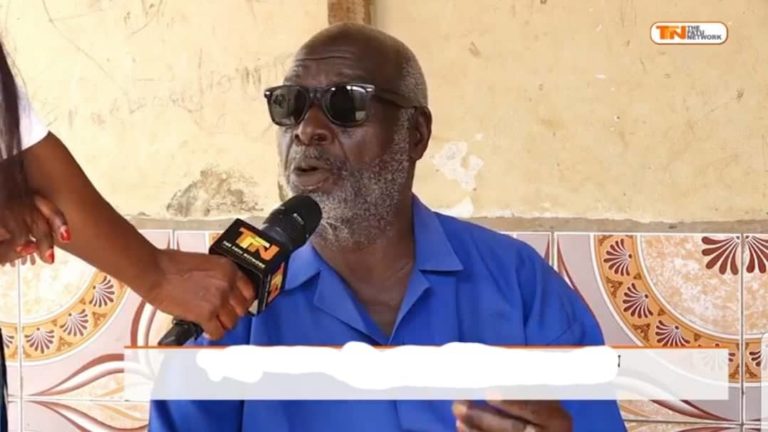
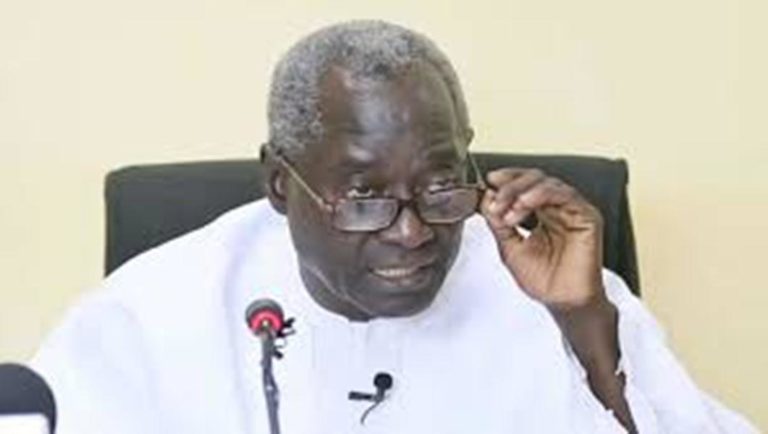
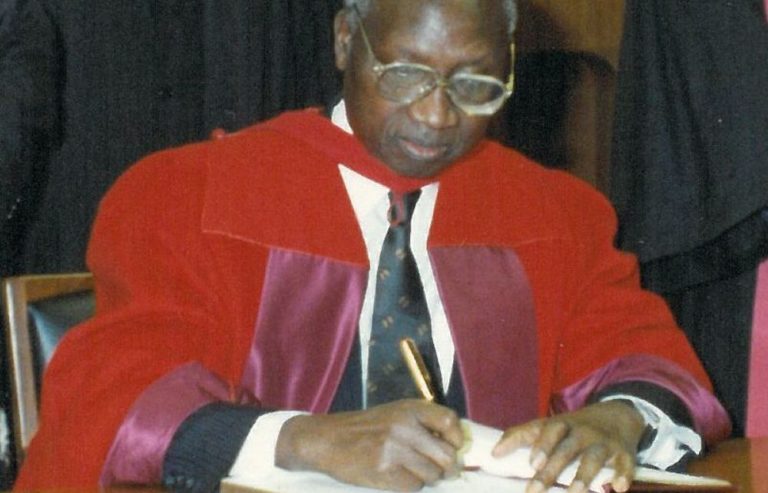

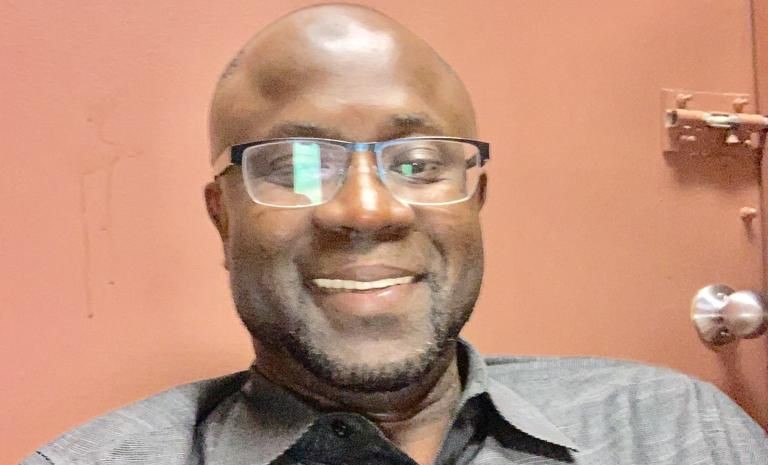
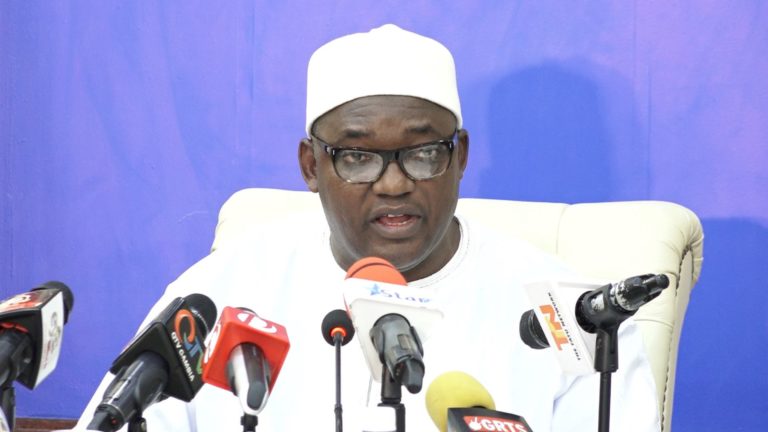
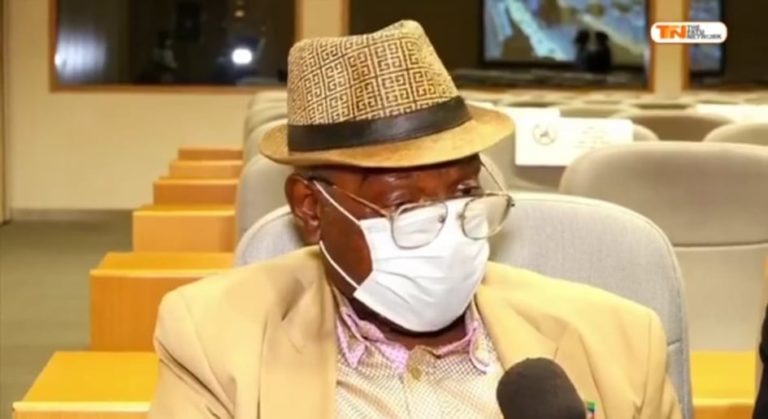
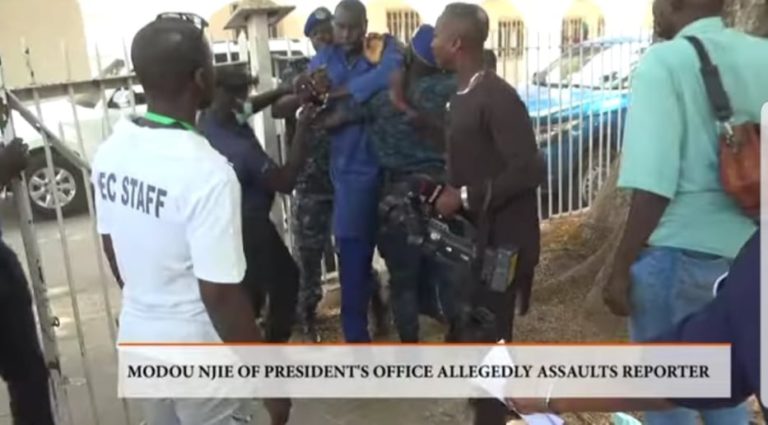
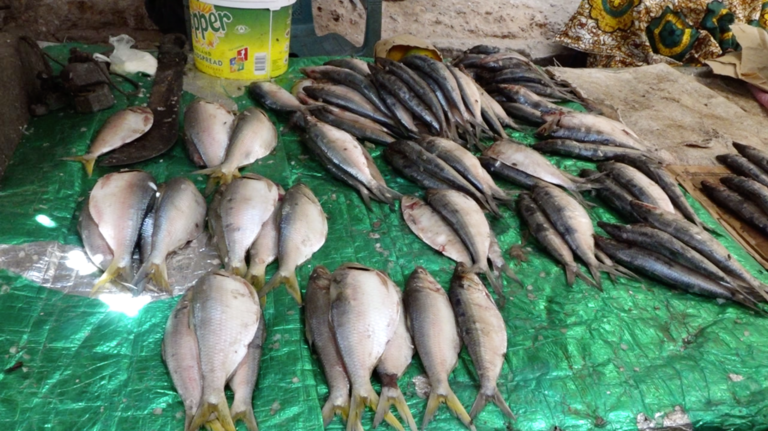
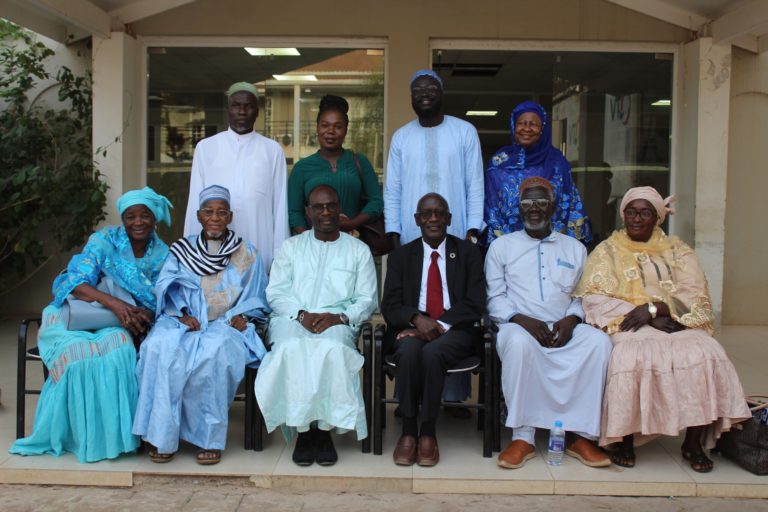
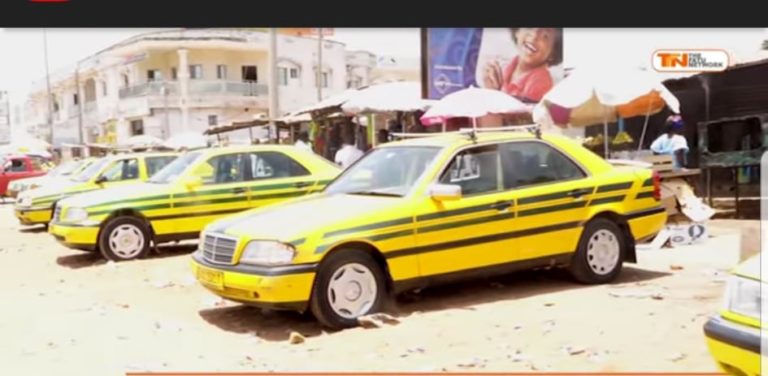

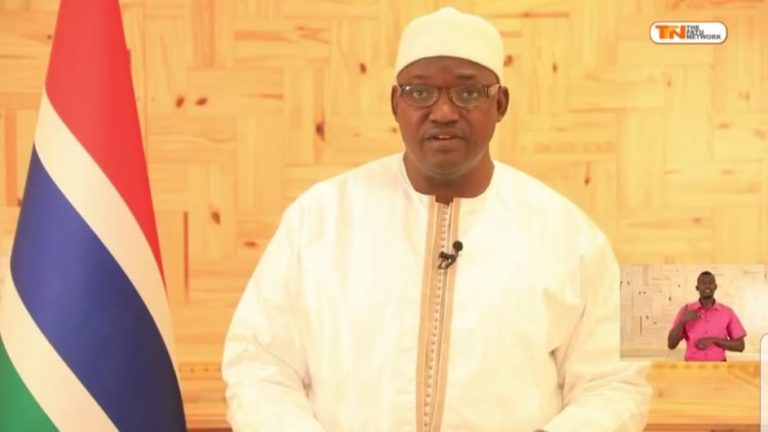
Soldiers on the Streets! On what terms?
By Madi Jobarteh
The announcement by the National Guard that it is deploying its forces into our communities in what it calls ‘Operation Restore Sanity’ is indeed concerning. Yes, there is definitely genuine concern and fears in the general public about security. Indeed, The Gambia Government bears primary duty to protect citizens! But to deploy soldiers in civilian communities must not be considered and taken lightly. As citizens, much as we have our fears, we must also not allow the Government to take actions without insisting on due protocols in the interest of human rights.
In the first place, we must recognize that the National Guards is a military outfit that cannot on its own, announce its own deployment and presence in civilian areas. If the military should be deployed in civilian areas, it must be announced by the civilian authorities in charge of the military. This would be the President as the Commander-In-Chief, or the Minister of Defence. They are the right authorities to address the nation to lay out the policy and operational objectives, the parameters and the overall terms of this military engagement!
Going further, in the Armed Forces announcement, there is no toll-free telephone number for public to use in reporting crime or seek help. The only two numbers they provided are mobile phone numbers, hence personal and not official. What is standard is to give landline numbers which should be hotlines and therefore free to call. To call a mobile line requires one to have credit or units. This means if a citizen has no credit, one cannot reach that number to report a crime, which could happen at any time. Therefore, one may ask is the National Guards truly prepared for this task or not?
Thirdly, the National Guards’ press release did not announce the names of the commanders and the base of this operation. Citizens have a right to know from which office is the command taking place and which officer is in charge of this entire operation. Further to that, the National Guards should tell us the duration of this exercise (will it last indefinitely or over a period of time), and how much will this operation cost the country. In that regard, they must also tell us the coverage of their deployment – is it only within the Greater Banjul Area or will it cover the entire country. The National Guards must realise that they must account for every action – whether successful or a failure – they take in this operation.
Fourthly, the Armed Forces did not announce the number of soldiers that are deployed in this operation and the kind of weapons they will use. The picture displayed by the National Guards shows soldiers armed with automatic machine guns. Is that the only weapons they will carry? All of these pieces of information are necessary for the general public to know in order to ensure transparency and accountability. Let us not allow our fears to make us ignore fundamental rule of law and democratic principles in governance lest we harm ourselves even more!
In this regard, the Armed Forces should tell citizens what are the rules of engagement. Deploying armed soldiers in civilian areas means the presence of lot of arms and force. Will the military mount checkpoints? Are they going to fire their guns? Will they arrest? Will they raid places? If they are confronted with gunfire, will they respond? Are they operating on a ‘shoot-to-kill’ policy or not? What happens if stray bullets kill innocent people in their homes? What happens if a soldier commits torture of a suspect? Who takes responsibility if their intervention led to destruction of property? How and where can citizens lodge complain against the conduct of soldiers? These are all questions that citizens must be concerned about so as to ensure that this operation is placed under close scrutiny and accountability.
Citizens must realise that this operation is not a charity. Rather citizens have a right to have protection for their rights, lives and property by the State. This is why there is the Gambia Police Force for that purpose. Thus, if the Government decides to use the military, it must have a genuine reason to do so which should not cause any damage to citizen rights. Therefore ‘Operation Restore Sanity’ and the National Guards and the whole of the Gambia Armed Forces must be monitored to ensure that they conduct this operation in keeping with the values and standards of human rights and democracy.
Finally, has the Government communicated this deployment to the National Assembly Select Committee on Defence and Security for the purposes of oversight and accountability. If not, I hereby call on the Select Committee to demand the Government to provide them the plan and necessary details of this operation in the interest of good governance, accountability and the protection of human rights above all.
Furthermore, while the Constitution grants power to the President to deploy the military ‘for purposes of maintaining and securing public safety and public order’ in Section 188(2), it is necessary that an act of the National Assembly is created to give details of this provision. In other words, the act should determine the circumstances, procedures, terms of deployment, rules of engagement among other details that should guide the use of the military for civilian purposes. Without such a law, the tendency for arbitrariness and abuse to prevail is high. Section 188(2) is too broad and indeterminate hence the need for an act.
Meantime, I hereby call on the President and the Minister of Defence to address the nation and provide the justification, objectives, duration, cost and terms of the deployment of the military in our streets!
For The Gambia Our Homeland